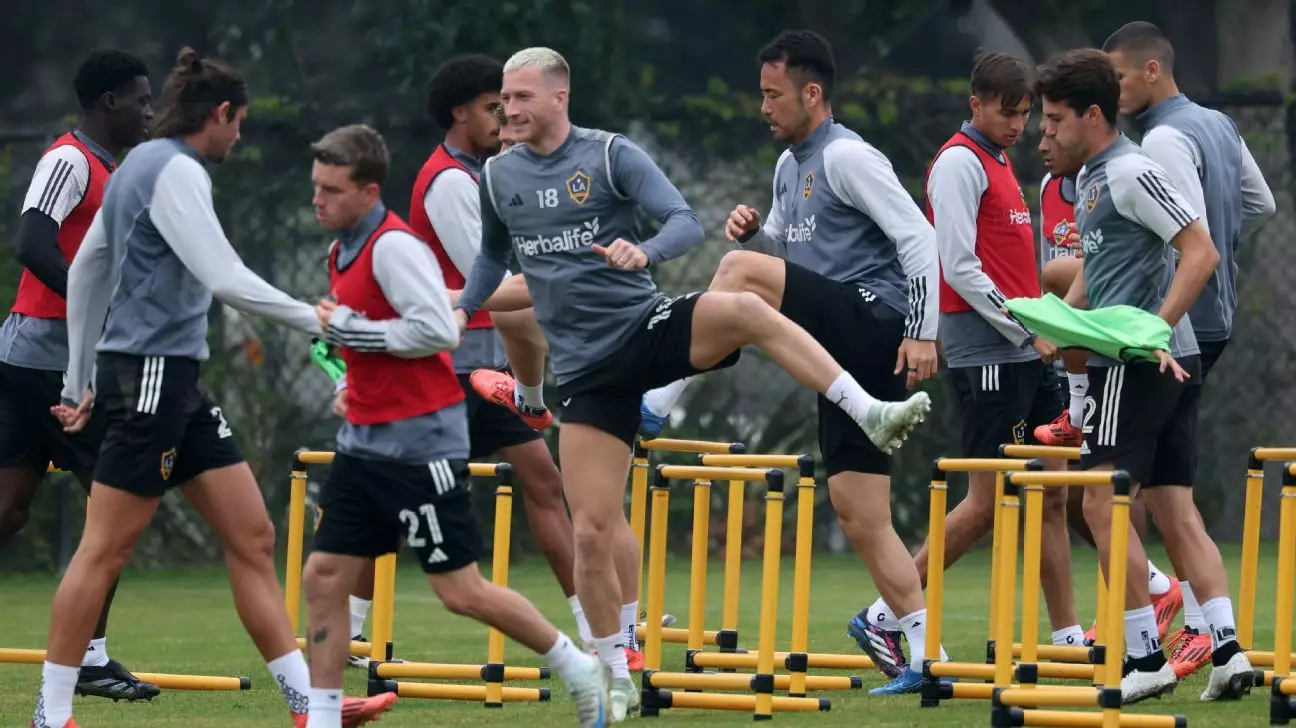As the LA Galaxy prepare to face the New York Red Bulls in the highly anticipated MLS Cup final, all eyes are on Marco Reus, the German midfielder whose fitness remains in question. Reus has expressed a cautious optimism about his availability for Saturday’s match, stating, “I’m not sure, I’m not sure, but it’s still 48 hours.” This uncertainty stems from a recent groin injury that limited his contributions during the Western Conference final against the Seattle Sounders. Despite his desire to take the field, there’s an underlying awareness that injuries can sometimes dictate the terms of participation in such crucial games.
Reus’ situation exemplifies the mental and physical challenges athletes often face leading up to important matches. While he appears to be making progress in his recovery, stating, “I’m doing pretty well,” it raises questions about how prepared he can be under the circumstances. The pressure to perform can weigh heavily on players, particularly in high-stakes games like this, where the margin for error is razor-thin. If Reus cannot play, it will not only dampen the Galaxy’s chances but also reflect on the emotional fabric of the team as they adapt to another critical absence.
The challenge for the Galaxy is compounded by the fact that they will also be without Riqui Puig, their standout player who received MLS Best XI honors but suffered an ACL tear that will sideline him for the foreseeable future. Puig’s injury represents a significant loss for LA, forcing the team to rethink their strategy and leadership dynamics on the pitch. The upcoming match becomes not just a test of skill, but a measure of resilience, as teammates must step up to fill the void created by these injuries.
In a team sport like soccer, the absence of key players can lead to shifts in morale and confidence. The Galaxy, who are vying for their first MLS Cup trophy in a decade, find themselves in a precarious position. Key leaders must emerge, not just to inspire their teammates but also to create a cohesive game plan that maximizes their strengths while compensating for the loss of brilliance in Puig and possibly Reus.
On the other side of the field, the New York Red Bulls approach the final with a mixture of excitement and determination. Having never won an MLS Cup, this final represents a golden opportunity for the squad to etch their names in league history. Players like John Tolkin have expressed a competitive spirit, highlighting the importance of their defensive tactics to neutralize the Galaxy’s attacking threats. Tolkin’s assertion that they intend to “kick the s–t out of them,” while perhaps hyperbolic, signals the aggressive game plan New York is willing to execute.
The Red Bulls seem to thrive under pressure, adopting a strategy that involves conceding possession while focusing on counter-attacks. By frustrating LA’s offense and capitalizing on mistakes, they aim to seize control of the match and exploit gaps left by their opponents. This calculated approach may be instrumental in allowing the Red Bulls to not only survive but also emerge victorious against a Galaxy squad that has been one of the league’s most storied franchises.
The Stakes of the Matchup
Both teams understand the significance of this match stretching beyond just the trophy. The Galaxy are looking to solidify their legacy as the league leaders in the number of MLS Cups won, while the Red Bulls are desperate to erase the memories of past near misses. The tension is palpable as players prepare for what could be a defining moment in their careers.
As the countdown to kickoff narrows, the weight of expectations looms for both clubs. The paths taken to reach this final have been fraught with challenges, but now every player must focus on the singular goal of lifting the coveted MLS Cup. With injuries and strategies in consideration, both teams will need to dig deep, adapt, and fight for every inch on the pitch. In the end, the outcome will reflect not just athletic prowess but also the indomitable spirit of competition that defines Major League Soccer.

